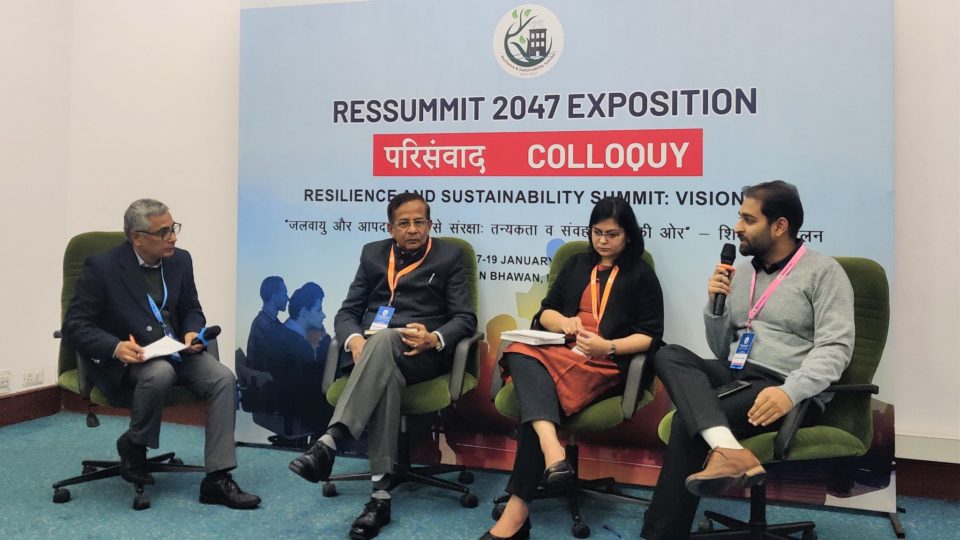
Wetlands International South Asia, in collaboration with the National Institute of Disaster Management, organised the परिसंवाद colloquy ‘NbS for Resilience’ to identify opportunities for embedding wetlands conservation as nature-based solutions in climate action and disaster risk reduction plans, share lessons learnt on local actions and scalability, and develop a strategy towards convergence of Science-Policy-Planning and Practice interface in wetlands conservation for climate resilience. The colloquy was organised on January 19, 2023 at Vigyan Bhawan, New Delhi.
Dr Shiraz A. Wajih, President of the Gorakhpur Environment Action Group; Dr Suchismita Mukhopadhyay, Lead Specialist-Advocacy at the Coalition for Disaster Resilient Infrastructure; and Mr Dhruv Verma, Senior Technical Officer at Wetlands International South Asia were among the distinguished panellists for the colloquy. The session was moderated by Dr. Asghar Nawab, Program Head, Aquatic Ecology, Wetlands International South Asia, and coordinated by Mr Ravi Prakash, Wetlands Specialist, Wetlands International South Asia.
Dr. Shiraz A. Wajih emphasised the role of wetland ecosystem services in livelihood security and suggested integration of wetland management actions in the Gram Panchayat Development Plan (GPDP) for enhancing disaster risk and climate resilience.

Dr Suchismita Mukhopadhyay highlighted the role of wetlands as blue-green infrastructure for climate change mitigation and disaster risk reduction. She emphasised the uptake of hybrid approaches, integrating gray with blue-green infrastructure, and the standardisation and benchmarking of nature-based solutions to assess their effectiveness. Mr. Dhruv Verma emphasised decentralising the concept of nature-based solutions, cross-fertilization of NbS with disaster, climate, and wetland professionals, and highlighted the importance of small wetlands in scaling up local resilience.
Key outcome:
- Integration of wetlands conservation in Gram Panchayat Development Plan, Climate action and Disaster Risk Reduction plan
- Hybrid approach of integrating gray infrastructure with blue-green infrastructure for resilience
- Strengthening participatory conservation of small wetlands for livelihood security and resilience

